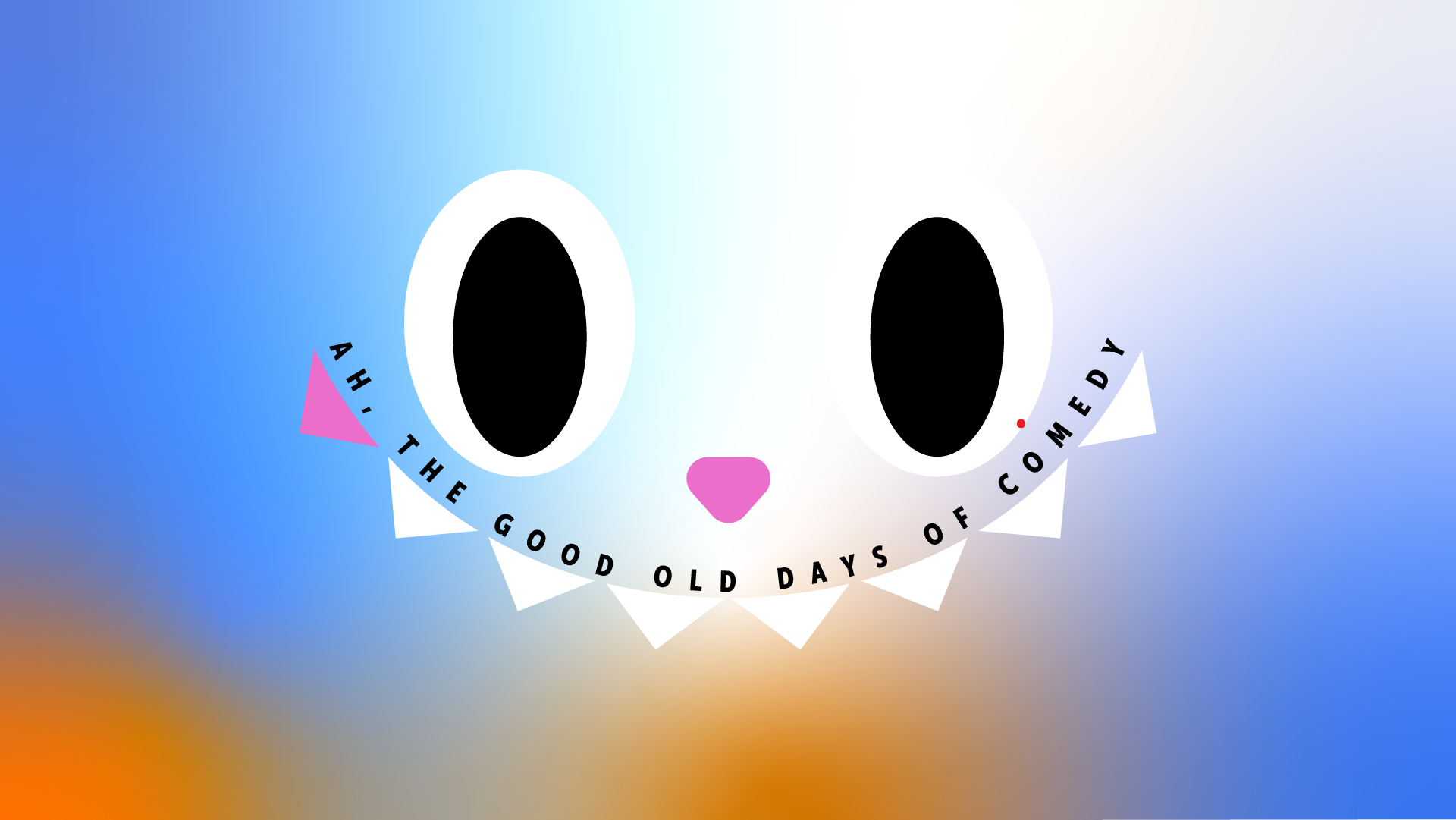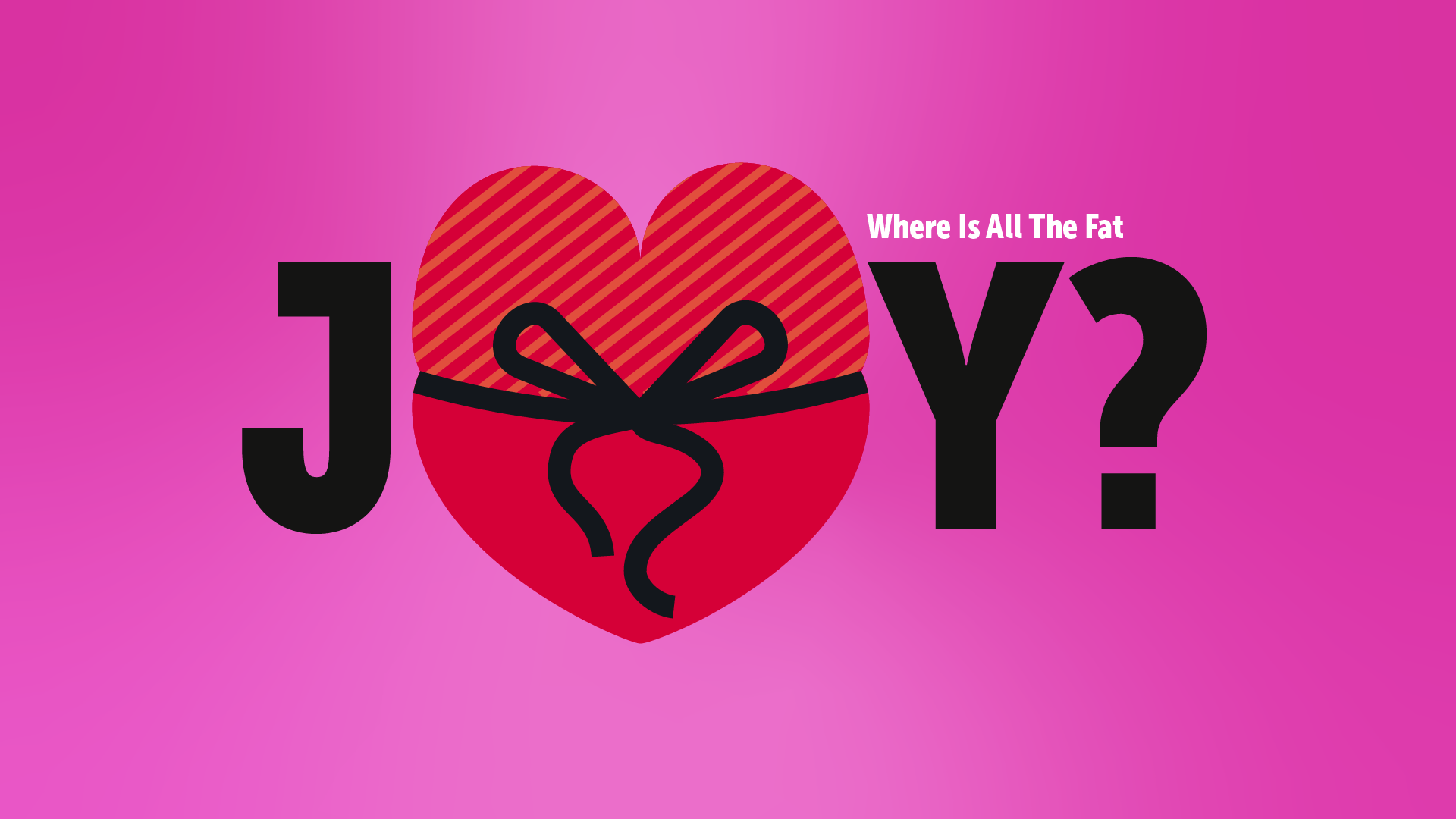Ah, The Good Old Days of Comedy
Written by Esther Smith
I’m a Millennial x Gen Z hybrid who loves avocado toast and has a codependent relationship with TikTok/Instagram Reels, so I know a thing or two about the war between generations. Unless you want me to go into great detail about the Millennial Pause, the Influencer Voice, and the housing crisis let me just give you the TL;DR version: everyone just about hates everyone. What a wonderful world.
While there are neutral zones in generational wars (ABBA being the glue to this), comedy is among them… kind of. Behind the laughs, there are frowns: woke culture, outdated humour, and films with no real substance – there seems to be a lot of opinions on which generation is the best and it’s not a new thing.
Are we always destined to curse the generation before our own? Shake our heads disapprovingly at the next generation? It’s a known fact that comedy styles have changed throughout the years but I’m diving a bit deeper into why this is the case, with the hope we can put aside the differences and hold hands around the campfire, singing in harmony… although, maybe I’m asking for a bit too much.
Comedy Through Generations
If you google the names for each generation, you’ll see how many variations there are: dates can sometimes clash, the names may be different, and this chart shows I’m thoroughly Gen Z even though I’m convinced I’m half Millennial. So, here lies our first problem: sometimes the clean, neat data can feel messy when we take social environments into account - these films may overlap in generations, but each one has brought something new to the comedy scene.
Boomer Comedies
Now, Boomers are “behind the times”, but it was a different story back then. This was a generation that thrived on dark humour, risky jokes, and challenging the traditional beliefs of that time.
With the US divided over the Vietnam War, M*A*S*H (1970), an anti-war comedy film set during the Korean War proved to be a smash hit. The Rocky Horror Picture Show (1975) challenged traditional gender norms and sexual liberation in a rock-and-roll musical. Monty Python’s Life of Brian (1979) was hailed as one of the greatest comedy films of all time while simultaneously being campaigned against for its blasphemy and mocking religion.
Gen X Comedies
How about something a bit lighter? Gen X comedies provided easygoing laughs that would become timeless: we see newly created works pulling inspiration and paying homage to these films.
Escapism and nostalgia makes Ferris Bueller’s Day Off (1986) an iconic, loveable coming-of-age film. Bill & Ted’s Excellent Adventure (1989) is undeniably goofy, the sketch-turn-movie is a cult classic. Home Alone (1990) is proof that slapstick comedy will never die. The film is a beloved classic and even held a Guinness World Record for two decades.
Millennial Comedies
It’s time to get weird. Millennial humour thrived on cringe, awkward moments - you just have to get it to understand.
Wayne’s World (1992) being in this category while being early 90s is no mistake, the film was a hit with the younger age groups and was a prime example of the generational gap in comedy. Zoolander (2001) poked fun at the fashion industry and while some models have mixed opinions on the accuracy, the film was a sleeper hit. Even the team behind Napoleon Dynamite (2004) didn’t expect the film to have as much success as it did, but everyone loved the quirky charm and, most importantly, it was quotable.
Gen Z Comedies
Bold and brash: Gen Z have opted for more in-your-face comedies that take risqué jokes and shines a beaming light on them.
Bridesmaids (2011) has been credited with paving the way for female-fronted comedy, with iconic performances and scenes that have burned into our brains… like lava. Can you reboot a 1980s television show into a successful comedy franchise? 21 Jump Street (2012) is living, breathing proof of this thanks to its smart humour and memorable moments. Deadpool (2016) broke records with its release with punchy jokes and the plot that twisted superhero cliches into something new and fresh.
Changes Through History
People often say comedy is one of the hardest genres to get right. There are several factors but this Reddit user raised an interesting point on the nuance of humour - when we factor in language, cultural differences, and trends, it can lead to comedy not landing on its feet in another region.
Silent comedy films have an advantage; their use of slapstick is universal and therefore easily translated into different countries and cultures. But what other factors determine the changes to comedy over the years?
Society Trends
Let’s address the elephant in the room: has comedy changed because of wokeness? When you search about the decline of comedy movies, it’s certainly a catchy headline and captures the rage, no matter what side you’re on.
Director Todd Philips has been vocal about the decline in comedy films, citing woke culture as a constant hurdle for filmmakers, while actor Ben Stiller spoke about the difficulties of making edgier comedies “in this environment”. It really didn’t take much research to find more opinions on the Death of Comedy – all naming one culprit: wokeness. There’s even been lists made to spotlight films that could never be made today.
If I had to examine one film that was heavily targeted, I’d point to Ghostbusters (2016) as it received a mixed response from critics but a negative response from audiences – director Paul Feig reflects on the timing of the movie and suggests the backlash was connected to the tense 2016 American election, while Buzzfeed suggests sexism had a part to play.
Audience Trends
The audience controls everything all the way from what smashes and bombs the box office. Overexposure of a trope can have audiences turning their backs on something they once liked: we’ve seen a lot of this with Superhero Fatigue, but also with parody films. I’m talking about clear parodies of cinema hits like The Starving Games (2013) being a straight parody of The Hunger Games (2012), Vampires Suck (2010) parodying Twilight (2008), Disaster Movie (2008) parodying the disaster film trope, and Scary Movie (2000) doing the same but… well, horror film tropes.
Airplane! (1980) breathed life into the spoof genre but somewhere in the late 2010s, it died - perhaps due to a rinse-and-repeat formula, or the jokes became cheap. Can parody films make a comeback? Scary Movie 6 is officially in the works and maybe, just maybe, it’ll revive the genre.
However, we can’t always hit the mark - or even expect how the audience will react. While a murder attempt on the lead character’s wife is not necessarily being criticised, it is the portrayal of food allergies that has been called into question in The Roses (2025).
Political Trends
It’s become very common to see political comedy on television: Saturday Night Live, South Park, and my first introduction to the Watergate scandal was through an episode of Futurama. Who said television wasn’t educational?
Political comedies are risky: the world is divisive and a seemingly lighthearted joke may not be taken in jest. More often than not, it sparks a lot of controversy. The Dictator (2012) has been accused of using stereotypes to shape political views in the Western World, with the film being banned in Kazakhstan. After the Sony Pictures hack, the theatrical release for The Interview (2014) was cancelled but remained in the spotlight with illegal downloads - this ordeal certainly didn’t help the relationship between the US and North Korea.
Sometimes those risks pay off, however. Combining a teen-flick with a political thriller, Dick (1999), pulled a lot of praise for its imaginative and clever re-telling of the Watergate scandal, and is still well-loved today. British comedy doesn’t always translate well across the pond but American audiences loved In The Loop (2009) and the film about bureaucracy during the Iraq war as sharp and funny - even though the inspiration behind the character didn’t agree.
Historical Trends
In a recent historic event, we were all inside for two years as the world came to a standstill. Yes, I’m referring to the COVID pandemic. No, it doesn’t bring me joy to discuss this - but this era had a monumental impact on the film industry and audience trends: streaming services were thriving and people didn’t want to have a constant reminder of the pandemic, they wanted escapism.
Bo Burnham: Inside (2021) was a smash hit, discussing the state of the world and society without explicitly mentioning the pandemic. The piece has been hailed as a COVID-era time capsule, and won 3 Primetime Emmys. So, are pandemic-centered films good? Not always. The Bubble (2022) was not only hit by bad reviews, but also served as a not-so-fun reminder of the protocols that existed.
Financial Trends
We can all agree that financial instability in the world isn’t funny, it’s actually quite the opposite. However, there are times where we need to laugh at the state of the world - it’s simply how we cope. Sometimes these are hits, and other times audiences don’t want to be reminded.
How To Beat The High Cost of Living (1980) was criticised for how it made light of the 1970s recession and landed a low place on a ranking list for 1980s heist movies. However, Dirty Rotten Scoundrels (1988) was reportedly charming and praised for how they handled the life of conmen.
Another global financial crisis hit again in 2008, cue more financial worry. The Hangover (2009) sets up a lavish, expensive trip to Las Vegas only to turn it on its head - and while it’s deemed problematic, people still love it. In the same year, Confessions of a Shopaholic (2009) was released and a story about a woman with horrendous debt and a shopping addiction was met with criticism for its untimely release.
What The Future Holds
If comedy has changed so much in 100 years, how are we supposed to predict where it’s going? The future of comedy lies in the future generations and simply put: what they find funny. Something that is a little bit scary to think about when we see the success of The Minecraft Movie (2025) and the viral trend that made headlines. I know what you’re thinking: Esther, that’s a film made for children, it’s going to be silly - to which you’d be correct, but we’ve got to remember that the films we make now shape the future.
Gen Z and Alpha are the first two generations that have been born and raised in the era of modern technology, so much so there’s brands using online trends and lingo to appeal to the younger generations and will these niche references weave their way into the films they make when they grow up?
We have a glimpse already thanks to A24: Zola (2020) stemmed from a 148-tweet thread back in 2015 that became viral. Most recently, The Backrooms was reported to be in development which originated online in 2019 and quickly became popular. The director, YouTuber Kane Parsons (who made short films about The Backrooms on his YouTube channel), was born in 2005 which would make him one of the youngest filmmakers of the newest generation.
Parsons is not the only one to break out of the internet: TikTok has played a massive part in aiding the comedy careers of creators. Skit comedian Delaney Rowe started online then featured in some short films, before joining the cast of the upcoming feature film You Deserve Each Other. Additionally, Sabrina Brier has broken out of the TikTok sphere when she guest starred on an episode of Abbot Elementary.
Is There A Winner?
Changes to humour comes from our environment: what is happening in the world and what we’re seeing in film. Similarities come from something that we love, that we want to carry over and create new art using it (or totally copying it like Family Guy often does). Sometimes, films age exceptionally well. Other times, not so much. Why this is the case, we’ll always have to look deeper: from news headlines, to box office statistics, to audience preferences. These greatly determine the stories filmmakers choose to tell.
In the generation war, there is no winner. I can’t present a generation with a kiss on their forehead and a gold star on their homework. Instead, we’ll all scream at the sky to insist we did it better than the last generation - comedy is no exception.





